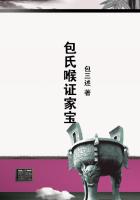“She likes you, I am sure,” said I, as I stood behind his chair,“and her father respects you. Moreover, she is a sweet girl—rather thoughtless; but you would have sufficient thought for both yourself and her. You ought to marry her.”
“Does she like me?” he asked.
“Certainly; better than she likes any one else. She talks of you continually: there is no subject she enjoys so much or touches upon so often.”
“It is very pleasant to hear this,” he said—“very: go on for another quarter of an hour.” And he actually took out his watch and laid it upon the table to measure the time.
“But where is the use of going on,” I asked, “when you are probably preparing some iron blow of contradiction, or forging a fresh chain to fetter your heart?”
“Don’t imagine such hard things. Fancy me yielding andmelting, as I am doing: human love rising like a freshly opened fountain in my mind and overflowing with sweet inundation all the field I have so carefully and with such labour prepared—so assiduously sown with the seeds of good intentions, of self-denying plans. And now it is deluged with a nectarous flood—the young germs swamped—delicious poison cankering them: now I see myself stretched on an ottoman in the drawing-room at Vale Hall at my bride Rosamond Oliver’s feet: she is talking to me with her sweet voice—gazing down on me with those eyes your skilful hand has copied so well—smiling at me with these coral lips. She is mine—I am hers—this present life and passing world suffice to me. Hush! say nothing—my heart is full of delight—my senses are entranced—let the time I marked pass in peace.”
I humoured him: the watch ticked on: he breathed fast and low:I stood silent. Amidst this hush the quartet sped; he replaced the watch, laid the picture down, rose, and stood on the hearth.
“Now,” said he, “that little space was given to delirium and delusion. I rested my temples on the breast of temptation, and put my neck voluntarily under her yoke of flowers. I tasted her cup. The pillow was burning: there is an asp in the garland: the wine has a bitter taste: her promises are hollow—her offers false: I see and know all this.”
I gazed at him in wonder.
“It is strange,” pursued he, “that while I love Rosamond Oliver so wildly—with all the intensity, indeed, of a first passion, the object of which is exquisitely beautiful, graceful, fascinating—I experience at the same time a calm, unwarped consciousness that she would not make me a good wife; that she is not the partner suited to me; that I should discover this within a year after marriage; and that to twelve months’ rapture would succeed a lifetime of regret. This I know.”
“Strange indeed!” I could not help ejaculating.
“While something in me,” he went on, “is acutely sensible to her charms, something else is as deeply impressed with her defects: they are such that she could sympathise in nothing I aspired to—co-operate in nothing I undertook. Rosamond a sufferer, a labourer, a female apostle? Rosamond a missionary’s wife? No!”
“But you need not be a missionary. You might relinquish that scheme.”
“Relinquish! What! my vocation? My great work? My foundation laid on earth for a mansion in heaven? My hopes of being numbered in the band who have merged all ambitions in the glorious one of bettering their race—of carrying knowledge into the realms of ignorance—of substituting peace for war—******* for bondage—religion for superstition—the hope of heaven for the fear of hell? Must I relinquish that? It is dearer than the blood in my veins. It is what I have to look forward to, and to live for.”
After a considerable pause, I said—“And Miss Oliver? Are her disappointment and sorrow of no interest to you?”
“Miss Oliver is ever surrounded by suitors and flatterers: in less than a month, my image will be effaced from her heart. She will forget me; and will marry, probably, some one who will make her far happier than I should do.”
“You speak coolly enough; but you suffer in the conflict. You are wasting away.”
“No. If I get a little thin, it is with anxiety about my prospects, yet unsettled—my departure, continually procrastinated. Only this morning, I received intelligence that the successor, whose arrival I have been so long expecting, cannot be ready to replace me for three months to come yet; and perhaps the three months may extend to six.”















